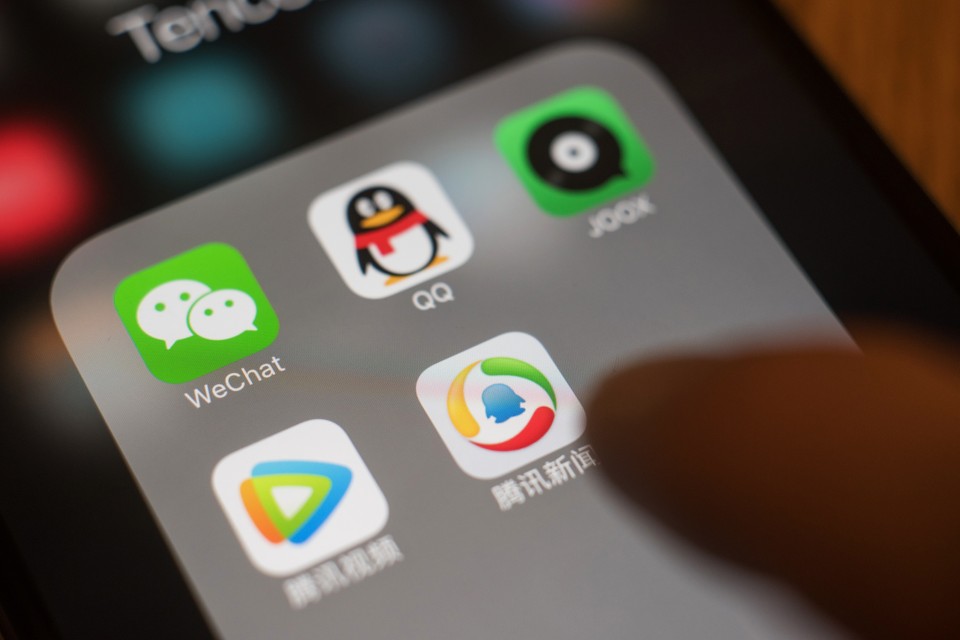Pony Ma is founder, chairman and CEO of Tencent, the world’s most valuable social media company. This article is adapted from “China at Your Fingertips,” part of the forthcoming book series, “Understanding China,” edited by Zheng Bijian.
BEIJING — According to estimates by the China Internet Network Information Center, there were 751 million Internet users in China as of June 30, 2017. That is about 9 million more than Europe’s total population during the same time period. It is also more than twice the total U.S. population of 323 million people at the end of 2016.
Those 751 million individuals make up the world’s largest single Internet market. Every day, almost all of them will open WeChat, send messages and browse Moments, WeChat’s sharing platform. Every day, a significant majority of them will use WeChat Pay or Alipay to buy things in stores, supermarkets, restaurants and hotels. Every day, most of them will place orders and purchase things on e-commerce platforms and then wait for express delivery staff to deliver their goods. Every day, some of them will order food for delivery or book housekeeping services or manicures on various consumer services platforms. Every day, a smaller number of them will use online platforms to book a car for transportation or scan a code to ride a shared bicycle.
Chinese Internet users have also set unique “world records” in their own ways on special holidays. For example, on Nov. 11, 2017 — the singles’ shopping day invented in China — Chinese Internet users ordered goods worth a total of more than 168.2 billion yuan ($24.2 billion) on China’s largest e-commerce platform. On the eve of the Chinese New Year in 2017, Internet users extended the festive tradition of giving physical red packets of money to the virtual world with red packets in WeChat. More than 14 billion WeChat “Red Packets” — small red envelopes traditionally given with gifts of money — were sent on that day to celebrate the new year with this new tool from the era of the mobile Internet.
As of the end of Sept. 2017, the combined number of WeChat’s active users in China and overseas for that month reached 980 million, making WeChat the most active app in China with the most users. In 2016, the typical user sent 74 messages through WeChat every day, which averages one message every 15 minutes if we take seven hours of sleep into account. The typical user took around 5,900 steps every day and put 580 yuan (about $84) into 28 Red Packets belonging to their WeChat friends every month.
We can get a glimpse of an ordinary day with China’s Internet through public data from 2016. Every day, Tencent’s Dreamwriter, a news-writing robot, wrote and released 2,000 finance or sports-related news articles. Every day, consumers purchased 12.9 billion yuan ($1.85 billion) of merchandise through China’s two largest e-commerce platforms, Alibaba and JD.com. Every day, Tencent Maps was accessed more than 50 billion times by various apps. Every day, Didi Chuxing handled more than 20 million requests for car rides and planned 9 billion routes. Every day, China had 85.75 million express packages delivered to doorsteps. Every day, more than 20 million piping hot food deliveries were made to the tables of customers by delivery staff riding electric scooters. Every day, 266 million small transactions were completed by scanning a code into a third-party payment app such as WeChat Pay or Alipay.
This is the enormous volume of big data in the era of the mobile Internet, and it is also the daily routine for hundreds of millions of ordinary Internet users in China.
Although massive numbers of people are now online in China, compared to its huge population base, a digital divide still exists. China’s Internet penetration rate is only 54.3 percent, compared with over 80 percent in developed countries, and nearly 70 percent in G20 countries, meaning the Internet still has room for future growth and new ideas.
For those who have not yet connected to the Internet, the rollout of fourth generation mobile communication technology, or 4G infrastructure, followed up by mobile Internet services, is undoubtedly the most cost-effective investment for improving living standards. Chinese society under the mobile Internet is moving toward universal inclusivity and is a future we are all looking forward to sharing.
As Chinese society becomes more connected, the dividing line between the digital and real economies will become increasingly blurred and will eventually disappear. There will be no purely Internet-only companies because the Internet will have spread to cover all social infrastructure; nor will there be purely traditional industries because they will have grafted onto the Internet. When no one refers to the Internet on its own anymore, the goal of “Internet Plus” will have been achieved. Full integration is the real theme of technological progress.
When we look back at today, we will realize that the rise of the mobile Internet — a response to the social changes in China — is a historic opportunity and treasure for this important developing nation.
This was produced by The WorldPost, a partnership of the Berggruen Institute and The Washington Post.





